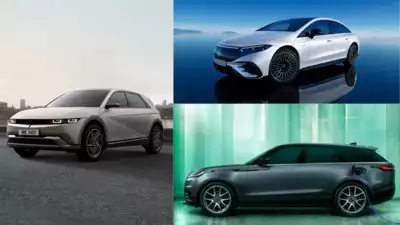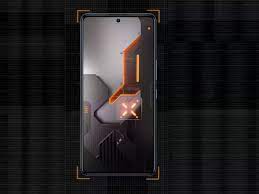The floral paint on the Hyundai IONIQ 5 and the vegan inside of the XC40
In recent years, the car manufacturing sector has made sustainability a top priority. Carmakers are under pressure to implement more sustainable practices throughout their production processes as a result of rising customer demand for eco-friendly goods and increased knowledge of environmental challenges. The vehicle industry is moving in the right direction by lowering energy and carbon emissions, using recycled components, and putting renewable energy sources into practice.

And April 22, 2024, is World Earth Day. Every year, over a billion individuals from 192 nations participate in what has grown to be the world’s biggest civic-focused day of action. On April 22, there are events all throughout the globe, such as marches, protests, public hearings, tree planting, and neighborhood clean-ups. Additionally, it serves as a forum for governments and businesses to declare and commit to sustainability initiatives. Car manufacturers are increasingly focusing eco-friendly methods and using materials that decrease environmental effect and promote sustainability. The automobile sector is also contributing to green driving efforts. Let’s examine sustainable automotive materials in this post to contribute to a more environmentally friendly future.
Here’s why Hyundai says the Ioniq 5 is made from nature. The inside leather of the Hyundai Ioniq 5 EV is colored using flaxseed oil, and the leather itself is eco-processed. Plans are converted into headliner and carpet components; the fabric contains bio components derived from maize and sugarcane. Fascinatingly, bio paint made from flowers is used to color the crash pad and door trimmings of the Ioniq 5.
Additionally, it makes use of a paperette that is 100% recyclable and is composed of HDPE with a classic paper feel. Hyundai Motor adds that recycled bottles are used for door armrests and setbacks. Hyundai India has revealed that the Ioniq 5 would now come in new external and interior color choices. The Titan grey exterior color choice and the Obsidian black interior option are now available for the EV SUV. There is just one type of the EV, and it costs Rs 46.1 lakh (ex-showroom). The Kia EV6, the cousin of the Ioniq 5, also employs recyclable materials and vegan leather upholstery inside.
The Volvo XC40 and C40 electric vehicles that are marketed in India have interiors made entirely of vegan materials and no leather. The business employs Nordico, a novel interior material composed of corks reclaimed from the wine industry, bio-attributed material from sustainable forests in Sweden and Finland, and fabrics manufactured from recycled materials like PET bottles. Volvo claims that their decision to stop using leather-free interiors is partly motivated by worries about the damaging effects of cow ranching on the environment, particularly deforestation. An estimated 14% of greenhouse gas emissions worldwide from human activity are attributed to livestock, with cattle farming producing the bulk of these emissions.
Volvo also states that it wants to be a completely circular company by 2040, with a target of having 25% of the material in new Volvo automobiles originate from recycled and bio-based sources. It also intends to employ 100% renewable energy by 2025 for all of its direct suppliers, including material suppliers, as part of its climate action objectives.
Additionally, BMW offers five vegan-friendly cars, such as the i3 and 3 Series. Sensatec faux-leather upholstery is standard on the 3 Series sedan, and according to BMW, 95% of the i3 model is composed of recyclable carbon fiber. Additionally composed of vegan materials is the Land Rover Range Rover Velar. The Velar is offered with the option to install Range Rover’s “Premium Textile” material, which includes imitation leather for the dashboard, seats, and steering wheel made of artificial suede.
With floor mats produced from recovered fishing nets, floor mats composed of natural fibers and fabrics, traditional plastic components made of natural fibers, and more, many Mercedes-Benz models available in India also provide sustainable luxury.
The interiors of the Tata Avinya, a concept electric vehicle that Tata Motors unveiled in 2022, are also vegan. Also, the vehicle was given a “Cow-Friendly Future Award” by PETA India, an organization that promotes the ethical treatment of animals. “PETA India recognizes and thanks Tata Motors for using a modern vegan interior in the Avinya Concept,” states the certificate of appreciation that PETA India is giving to Tata Motors. “Every Avinya Concept car sold will result in fewer cows being slaughtered for archaic, outdated tastes,”






